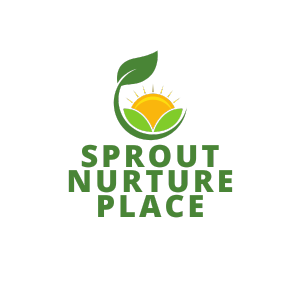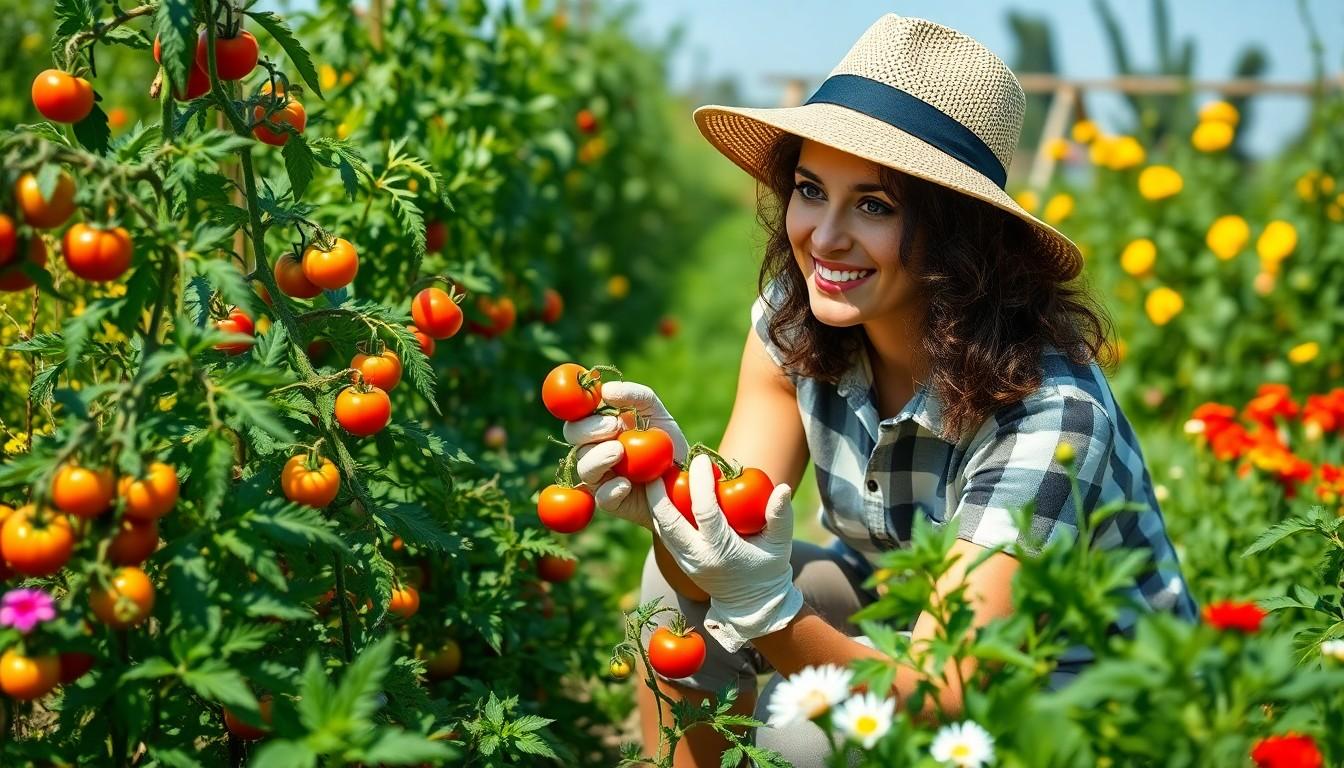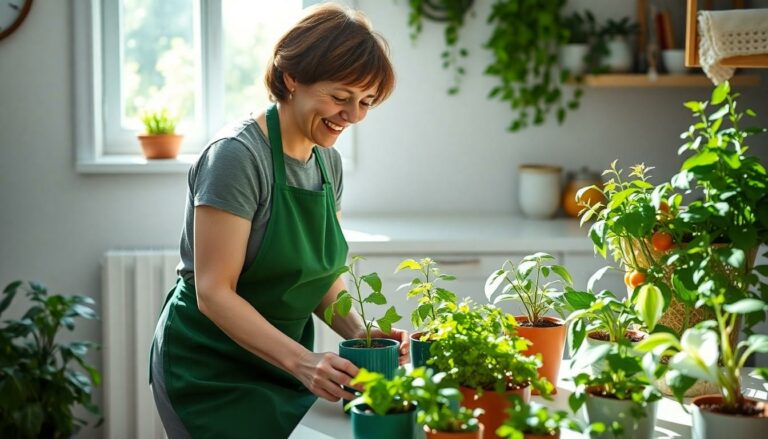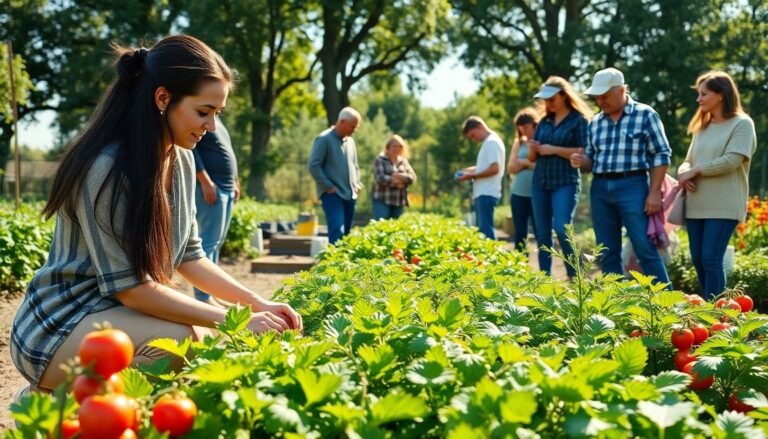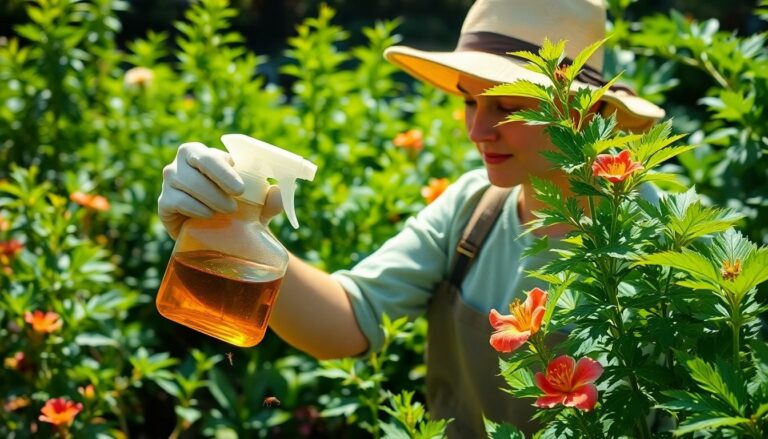In a world filled with synthetic fertilizers and chemical pesticides, organic gardening stands out like a superhero in a cape. It’s not just about growing plants; it’s about cultivating a healthier planet and a happier gardener. Imagine biting into a juicy tomato that’s as free from chemicals as a toddler at a candy store. Organic gardening techniques offer a way to embrace nature’s wisdom while keeping those pesky chemicals at bay.
Organic Gardening Techniques
Organic gardening techniques include various practices that enhance plant growth while maintaining environmental health. Composting enriches soil, providing essential nutrients that support plants. Crop rotation minimizes pest outbreaks and soil depletion by alternating plant families each season.
Mulching suppresses weeds and retains soil moisture, making it a vital component for successful gardens. Handpicking pests, such as aphids and caterpillars, effectively reduces infestations without chemicals. Natural predators, like ladybugs and lacewings, also help control harmful insect populations.
Diversity in planting encourages resilient ecosystems. Companion planting utilizes beneficial partnerships among plants to deter pests and enhance growth. For example, planting marigolds alongside vegetables can deter nematodes and attract pollinators.
Organic pest management incorporates methods like insecticidal soap and neem oil, providing safer alternatives to synthetic pesticides. These approaches target specific pests while preserving beneficial insects and plant health.
Soil health plays a pivotal role in organic gardening success. Utilizing cover crops, such as clover and vetch, protects soil from erosion and adds organic matter. Regular soil testing identifies nutrient deficiencies and informs amendments necessary for optimal growth.
Water conservation techniques increase efficiency in organic gardening. Drip irrigation delivers water directly to plant roots, reducing waste. Rainwater harvesting systems further support sustainable practices by collecting water for irrigation.
All these techniques contribute to a holistic approach towards gardening, promoting sustainability and enhancing the overall gardening experience. By implementing these organic methods, gardeners create thriving environments that reflect nature’s balance.
Benefits of Organic Gardening
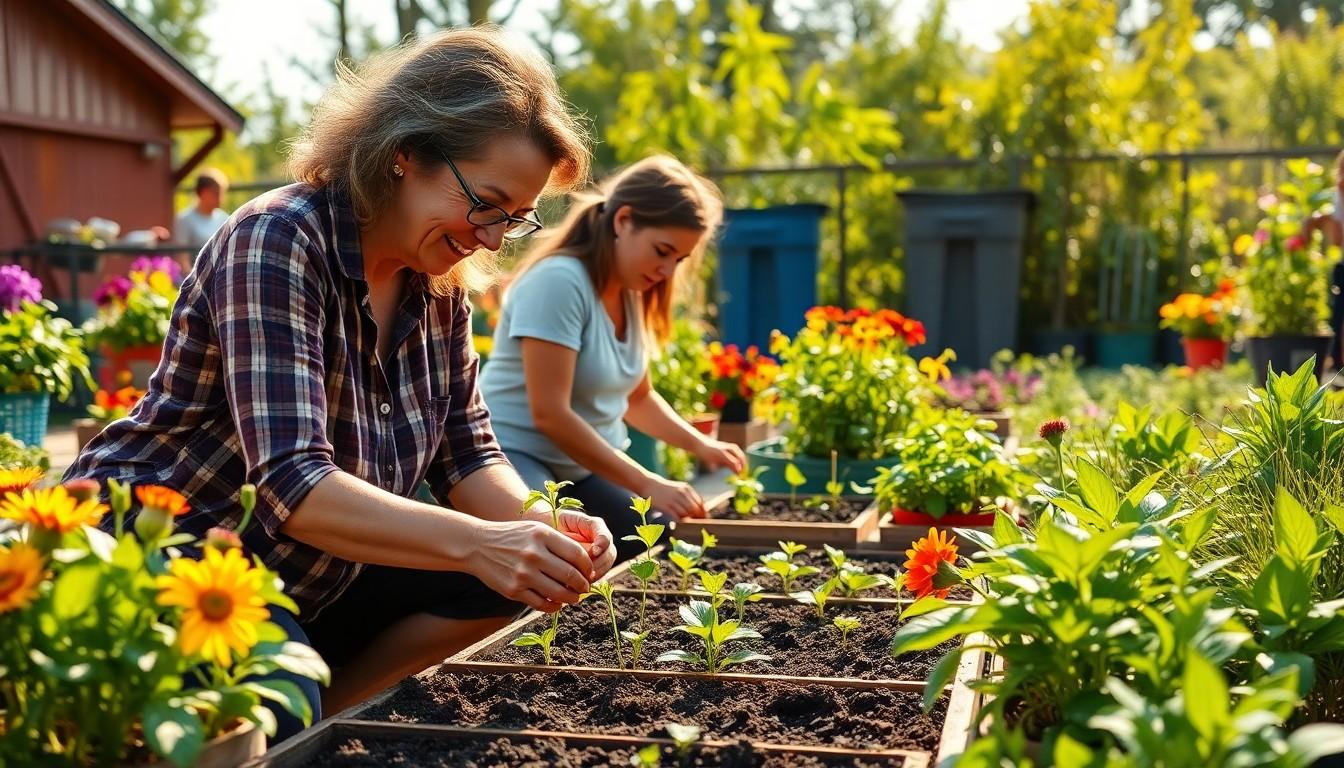
Organic gardening offers numerous advantages that significantly impact both the environment and individual health. Sustainable practices create healthy ecosystems while promoting a balanced life.
Environmental Impact
Organic gardening contributes to soil health by avoiding synthetic fertilizers. Natural methods improve soil fertility through composting and cover crops. Reduced chemical runoff protects local waterways and wildlife. Biodiversity flourishes in organic gardens, benefiting pollinators and natural pest predators. Healthier soil supports robust plant growth, creating a resilient ecosystem. Organic gardening methods prioritize environmental wellness, aligning practices with nature’s processes.
Health Benefits
Health benefits of organic gardening manifest in several ways. Consuming organic produce decreases exposure to harmful pesticides and chemicals. Nutrient-rich food supports overall health and well-being. Engaging in gardening activities promotes physical fitness through exercise and outdoor exposure. Mental health improves through interaction with nature and stress relief. Organic gardening fosters a deeper connection to food sources, enhancing dietary choices. These advantages contribute to a healthier lifestyle while nurturing a sustainable environment.
Essential Organic Gardening Practices
Organic gardening relies on practices that support plant health and promote sustainability. Emphasizing natural methods reduces reliance on synthetic inputs.
Soil Health and Management
Soil is the foundation for healthy plants. Compost enriches soil by adding essential nutrients. Regular soil testing identifies pH and nutrient levels. Cover crops improve soil structure and prevent erosion. Incorporating organic matter boosts fertility and microbial activity. Diverse soil organisms enhance nutrient availability. Healthy soil fosters strong root systems, contributing to better plant resilience.
Pest Control Methods
Pests can disturb the balance in organic gardens. Handpicking pests offers a direct control method without chemicals. Introducing beneficial insects like ladybugs provides natural pest management. Organic solutions such as neem oil or insecticidal soap effectively target unwanted pests. Employing companion planting deters pests by using specific plant combinations. Traps can discreetly capture larger pests while keeping beneficials safe. Maintaining garden diversity enhances overall pest resistance.
Sustainable Watering Techniques
Water conservation is crucial for maintaining an organic garden. Utilizing drip irrigation minimizes water waste by delivering moisture directly to roots. Rainwater harvesting captures and stores natural precipitation for use in gardening. Mulching preserves soil moisture and suppresses weed growth. Adjusting watering schedules based on seasonal needs optimizes resource use. Observing weather patterns allows for more efficient irrigation decisions. Healthy watering practices lead to thriving plants and reduced environmental impact.
Tools and Resources for Organic Gardening
Organic gardening requires specific tools and resources to thrive. Selecting the right equipment and educational materials can significantly enhance gardening success.
Recommended Gardening Tools
Pruners and shears are essential for trimming plants and managing growth. Trowels help in digging and planting, ensuring proper soil contact. A garden fork stirs up the soil, promoting aeration and mixing. Additionally, a watering can provides targeted moisture. Gloves protect hands while working with soil and plants. Lastly, a compost bin aids in creating rich organic matter that benefits fertile growth.
Useful Books and Online Resources
Books like “The Organic Gardener’s Handbook of Natural Pest and Disease Control” offer practical insights for managing pests organically. Online platforms such as the Rodale Institute provide extensive research and articles on sustainable practices. Additionally, YouTube channels dedicated to gardening share visual tutorials. Local extension services offer personalized advice on organic gardening tailored to specific regions. Community forums allow gardeners to share experiences and troubleshooting tips.
Embracing organic gardening techniques offers a pathway to a healthier lifestyle and environment. By prioritizing natural methods gardeners can enjoy the satisfaction of nurturing plants without harmful chemicals. The practices outlined not only enhance plant growth but also contribute to soil health and biodiversity.
As they cultivate their gardens using composting crop rotation and natural pest control methods gardeners foster a sustainable ecosystem. This approach not only yields nutritious produce but also enriches their connection to nature. With the right tools and resources anyone can embark on this rewarding journey toward organic gardening and make a positive impact on their surroundings.
